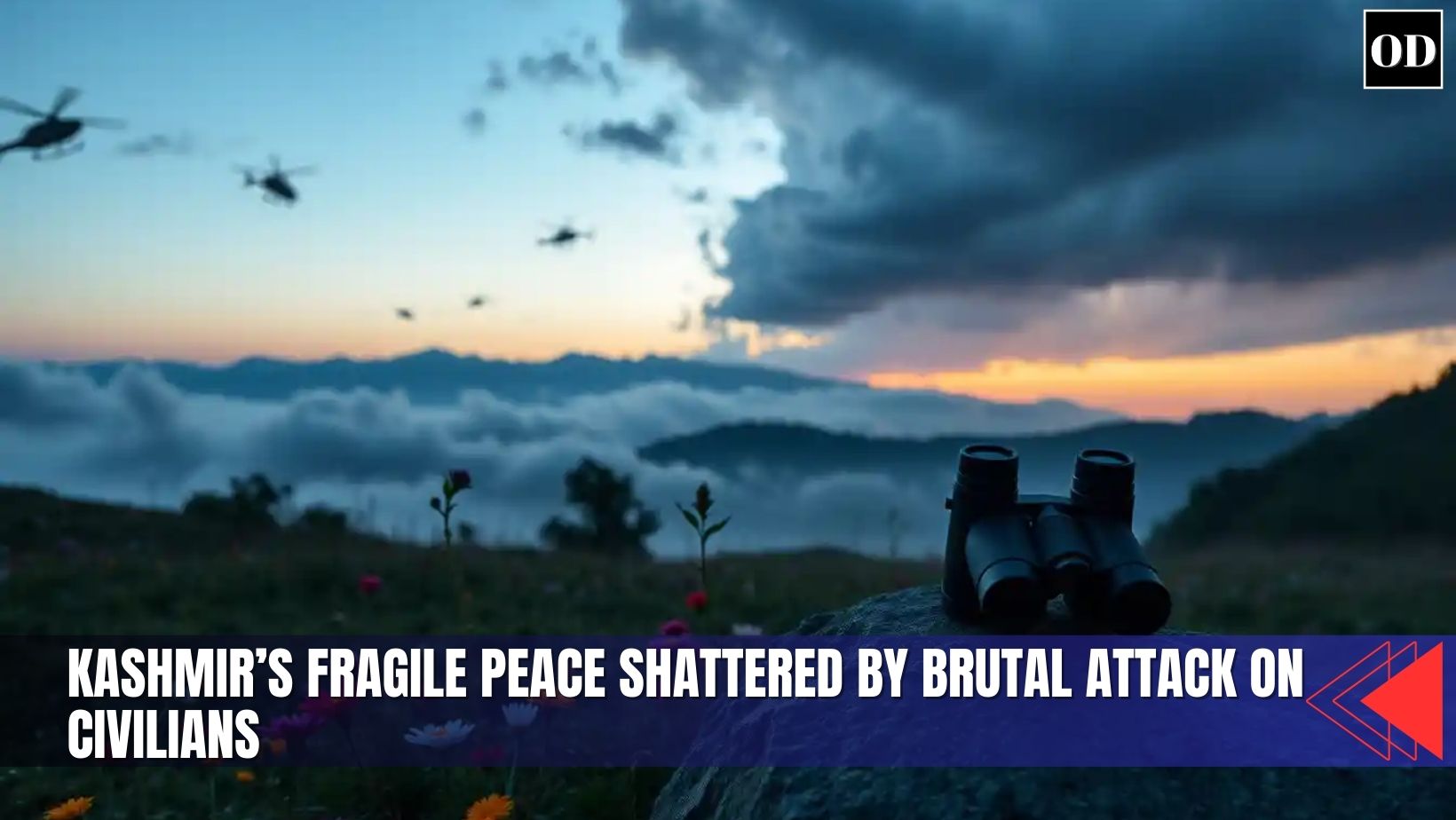
Kashmir’s Fragile Peace Shattered by Brutal Attack on Civilians in Pahalgam
A Devastating Blow to a Restive Region
On April 22, 2025, the serene Baisaran meadow near Pahalgam in Indian-administered Kashmir turned into a scene of horror as militants opened fire on tourists enjoying a peaceful outing. The attack claimed 26 lives, mostly civilians, and injured over a dozen others, marking one of the deadliest assaults on civilians in India since the 2008 Mumbai shootings. For years, India’s government had claimed its stringent measures had tamed the militancy plaguing Kashmir, but this tragedy exposed the fragility of that narrative, reigniting fears of unrest in the volatile region.
India’s Claim of Stability Unravels
Since 2019, when Prime Minister Narendra Modi’s government revoked Kashmir’s semi-autonomy and imposed direct rule from New Delhi, officials had promoted a story of restored calm. The surge in tourism, with visitors flocking to Kashmir’s breathtaking valleys, was hailed as proof of progress. Yet, the massacre in Pahalgam revealed a stark reality: the region remains a tinderbox. “This attack was meant to dismantle the idea that everything is under control,” said retired Indian army general D.S. Hooda, who once led operations in Kashmir. The targeting of civilians, particularly Hindus, intensified public outrage, as reports suggested victims were singled out by religion, echoing the sectarian violence of the 1990s that drove many Hindus from the region.
Tensions with Pakistan Resurface
Kashmir, a Muslim-majority region split between India and Pakistan since the 1947 partition, has long been a flashpoint for conflict. India accuses Pakistan of supporting militant groups behind attacks like the one in Pahalgam, a charge Pakistan denies, claiming it offers only moral and diplomatic support to Kashmiri insurgents. The attack, claimed by The Resistance Front—a group Indian officials link to Pakistan-based Lashkar-e-Taiba—has heightened fears of escalation between the nuclear-armed neighbors. A 2019 militant attack on Indian forces sparked an air skirmish; now, pressure mounts on Modi to respond decisively, risking renewed cross-border tensions.
Pakistani officials condemned the attack, with the foreign ministry expressing condolences and Defense Minister Khawaja Asif attributing it to “homegrown” elements. However, a recent speech by Pakistan’s army chief, Gen. Asim Munir, calling Kashmir “our jugular vein,” has fueled Indian suspicions of provocation, amplifying calls for retaliation.
A Community in Mourning
The victims, including 25 Indians and one Nepalese national, were ordinary people—tourists, a Navy officer on his honeymoon, and a shopkeeper from Pune named Kaustubh Gunbote. Kunal Gunbote, Kaustubh’s son, shared his mother’s harrowing account: “The terrorists strolled in, asked for names, and shot my father in front of her. There was no security nearby.” Images of bloodstained meadows and grieving survivors flooded Indian media, underscoring the human toll. Kashmir observed a shutdown on April 23, with schools and businesses closed in protest, while locals took to the streets to denounce the violence.
A Nation Responds, Tourists Flee
Prime Minister Modi cut short a trip to Saudi Arabia to chair a security meeting, while Home Minister Amit Shah visited Kashmir to meet survivors and honor the deceased. Defense Minister Rajnath Singh vowed a “swift response” targeting both the attackers and their backers. Security forces launched a manhunt, with two local Kashmiri suspects identified among the perpetrators. Meanwhile, tourists rushed to leave, prompting airlines like Air India and IndiGo to add flights from Srinagar. “It’s heartbreaking to see our guests flee,” said Jammu and Kashmir Chief Minister Omar Abdullah, acknowledging the blow to the region’s tourism-driven economy.
The Road Ahead
The attack has exposed the limits of India’s strategy in Kashmir, where heavy militarization and political crackdowns since 2019 have failed to eradicate militancy. As India balances domestic calls for action with the risk of conflict with Pakistan, the tragedy serves as a grim reminder of Kashmir’s unresolved tensions. The government’s promise of development and stability now faces scrutiny, with the world watching how India navigates this crisis. For Kashmiris and visitors alike, the path to peace feels more elusive than ever.



Average Rating